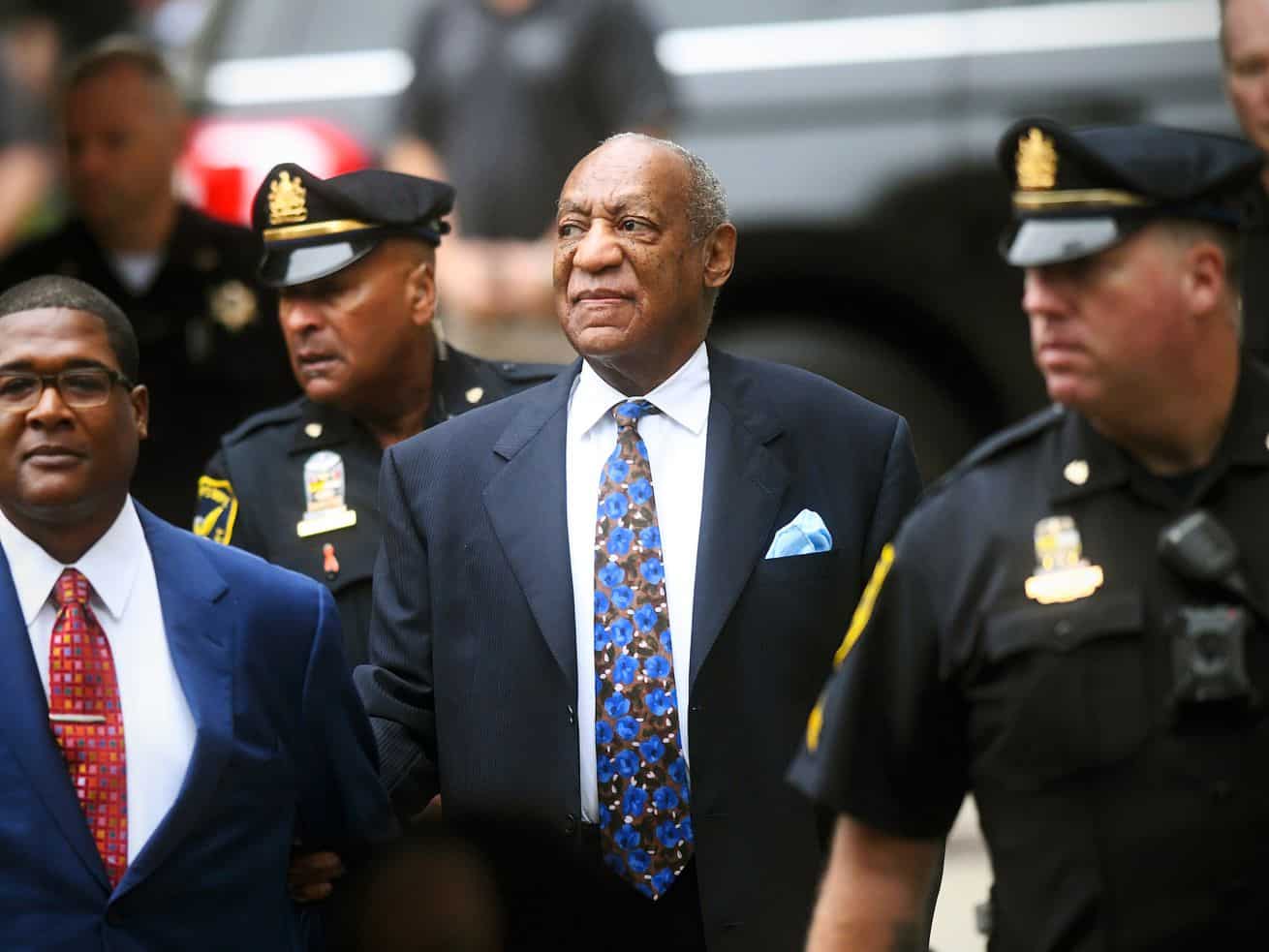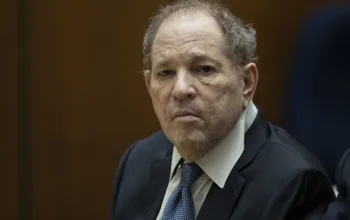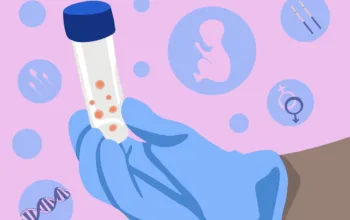The court decision freeing Bill Cosby is a train wreck. It’s also probably correct.
Bill Cosby, the disgraced comedian who was convicted of sexual assault in 2018, is no longer in prison, due to a state supreme court decision in Commonwealth v. Cosby.
The circumstances that freed him involve a stunning display of prosecutorial incompetence, a divided Pennsylvania Supreme Court that split three ways on what should become of Cosby, and a long, rambling judicial opinion that is often difficult to parse.
The thrust of that opinion is that, even though then-Montgomery County District Attorney Bruce Castor never reached a formal agreement with Cosby that granted him immunity from prosecution, a press release that Castor sent out in 2005 — combined with Cosby’s later, incriminating testimony in a civil lawsuit — had the same effect as a formal immunity deal.
That decision — which, again, attaches a simply astonishing amount of legal weight to a 16-year-old press release — is less ridiculous than it sounds. It does not exonerate Cosby; it merely strikes down his conviction on constitutional grounds. Justice David Wecht’s majority opinion is poorly organized and, at times, quite difficult to follow. But it is rooted in basic principles of contract law that will be familiar to most first-year law students.
The court owed the public, and especially victims of sexual assault, a clearer explanation of why it decided to free Cosby. Though accusations against the former entertainer came to light before the Me Too movement began, he was, as Vox’s Anna North explained, “one of the first high-profile men to face criminal consequences for sexual misconduct” since the movement gained steam. The court’s often-confounding opinion muddies this case’s place in history and may contribute to sexual assault victims’ sense that reporting the crimes against them won’t lead to justice.
But that doesn’t necessarily mean the court’s decision was wrong as a matter of law. Six members of the seven-justice Pennsylvania Supreme Court agreed that Cosby’s conviction must be tossed out, although only Wecht and three other justices agreed that the state should not be allowed to retry Cosby.
/cdn.vox-cdn.com/uploads/chorus_asset/file/22692638/GettyImages_1040080752t.jpg)
Sixty women accused Cosby of sexual assault, but he was ultimately convicted of assaulting just one of those women, Andrea Constand.
It’s possible that some other prosecutor will pursue a case involving one of Cosby’s 59 other accusers. But, barring an unlikely intervention by the US Supreme Court, Wecht is likely to have the final word on Cosby’s conviction for assaulting Constand.
That conviction is now dead, and likely to remain so.
Cosby was convicted of sexually assaulting Constand after drugging her
Andrea Constand is a former professional basketball player who formed a personal relationship with Cosby while she was directing Temple University’s women’s basketball program. Cosby invited her to his home, invited her family to his standup performances, and offered to help Constand launch a career in sports broadcasting. As P.R. Lockhart reported for Vox in 2018, “In 2004, Constand alleged that Cosby drugged and molested her during an incident at his home. The accusations were the subject of a civil lawsuit in 2005 and a criminal trial in 2017.”
Per the suits, during a visit to Cosby’s home in 2004, Cosby convinced Constand to take three pills containing some sort of sedative (Cosby claims that the pills were Benadryl). Shortly thereafter, Constand became weak and unable to move or speak. She also started slipping in and out of consciousness.
Then, while Constand was unable to tell Cosby “no” or physically attempt to stop him, he touched her breasts and inserted his fingers into her vagina. Cosby also used Constand’s hand to masturbate himself.
This incident also fit a pattern. At the criminal trial where Cosby was convicted of assaulting Constand, five other women testified that Cosby had also sexually assaulted them. Several of them testified that Cosby offered to mentor them or otherwise indicated that he could help their careers. And all of them testified that he gave them drugs, alcohol, or both to prevent them from resisting when he attacked them.
Prosecutors did not bring charges against Cosby until 2015, however, more than a decade after he assaulted Constand. Part of the reason is that Constand did not come forward with her allegations against Cosby until 2005, about a year after she was assaulted.
But an even more significant reason is that Castor, the district attorney, did not believe he could secure a conviction if he’d brought charges against Cosby in 2005.
Castor’s ill-conceived press release, and its aftermath
After a month-long investigation into Constand’s allegations against Cosby, Castor decided not to bring charges. Yet, according to Wecht’s majority opinion, Castor still “contemplated an alternative course of action that could place Constand on a path to some form of justice.”
That path: civil court.
Under the Fifth Amendment, no one may be “compelled in any criminal case to be a witness against himself.” But if a potential criminal defendant is given immunity from prosecution, they may be compelled to testify against themselves in a civil trial. So, as Castor later explained, he decided “that Mr. Cosby would not be prosecuted no matter what,” thinking Constand would have a better shot at justice in civil court. With the threat of prosecution removed, “that then made it so that [Cosby] could not take the Fifth Amendment ever as a matter of law.”
But Castor never reached a formal immunity agreement with Cosby, and Pennsylvania law typically requires a district attorney to “request an immunity order from any judge of a designated court” before such an agreement is finalized.
/cdn.vox-cdn.com/uploads/chorus_asset/file/22692649/GettyImages_1039263032t.jpg) David Maialetti/Pool/AFP via Getty Images
David Maialetti/Pool/AFP via Getty ImagesInstead, Castor sent a press release in February 2005 announcing that “the District Attorney finds insufficient credible and admissible evidence exists upon which any charge against Mr. Cosby could be sustained beyond a reasonable doubt.” The press release claimed that “a conviction under the circumstances of this case would be unattainable.”
Less than a month later, Constand filed a civil suit against Cosby, which she eventually settled for $3.38 million. But Cosby and Castor didn’t reach a formal immunity agreement during the year and a half while this case was being litigated either. During that suit, Cosby sat for four depositions and testified about his interactions with Constand. He also admitted that, in the past, he’d given Quaaludes, a sedative drug, to women with whom he wanted to have sex.
According to Wecht, “From the perspective of Cosby’s attorneys, the district attorney’s decision legally deprived Cosby of any right or ability to invoke the Fifth Amendment,” and “not once during the four depositions did Cosby invoke the Fifth Amendment or even mention it.”
Castor stepped down as district attorney in 2008 following his election to another office (Castor is a prominent Pennsylvania Republican, who briefly served as the state’s acting attorney general in 2016 and eventually represented then-President Donald Trump at his second impeachment trial), and his successor, Risa Vetri Ferman, decided to reopen the Cosby investigation in 2015.
Significantly, Ferman made the decision to reopen the investigation after a federal judge unsealed Cosby’s depositions, suggesting she may have based that decision on information Cosby revealed while testifying during the civil trial. Moreover, as Justice Kevin Dougherty notes in a partial dissent, Ferman’s office used “the evidence obtained in the civil case concerning Cosby’s ‘use of drugs to facilitate his sexual exploits’” against Cosby at his criminal trial.
And that brings us to the legal reason the state supreme court eventually tossed out Cosby’s conviction.
Wecht’s opinion is rooted in the idea that prosecutors must be bound by their own promises
In order to understand Wecht’s opinion, it’s helpful to understand a few basic contract law principles.
Ordinarily, in order for two parties to be bound by a contract, certain elements must be present. One party has to make the other an offer, and the other party needs to accept that offer. There also must be “consideration,” meaning each party has to agree to give something up to the other one. Under a doctrine known as “promissory estoppel,” however, a court will sometimes dispense with these requirements if one party makes a promise to the other, and the second party relies on that promise to their detriment.
Here’s a fairly basic example of how promissory estoppel works: When I started law school, a school official told the incoming class that the university would not enforce parking restrictions during the first week of classes. I relied on this promise, parked in a lot that I was ordinarily not allowed to park in, and received a ticket. After I complained to the university, they rescinded the ticket, because I’d relied on the university’s promise and suffered as a result.
According to Wecht, Castor’s 2005 press release functions much like my law school’s promise not to ticket me if I parked in the wrong lot. Cosby, moreover, relied on Castor’s alleged promise not to prosecute him by declining to assert his Fifth Amendment rights during his civil trial. And Cosby relied on that alleged promise very much to his own detriment. Not only did he reveal incriminating information during his civil depositions — testimony that was used against him in a criminal trial — but he also later settled the case for millions of dollars.
There are a number of weaknesses in Wecht’s arguments. For one thing, as Wecht acknowledges in his opinion, Pennsylvania law typically requires prosecutors to seek a formal order from a judge if they want to grant immunity from prosecution to a particular individual. And the 2005 press release doesn’t exactly contain explicit language to the effect of “I promise that this office will never bring a prosecution against Bill Cosby.”
As Justice Thomas Saylor writes in a dissenting opinion:
I read the operative language [of the press release] — “District Attorney Castor declines to authorize the filing of criminal charges in connection with this matter” — as a conventional public announcement of a present exercise of prosecutorial discretion by the temporary occupant of the elected office of district attorney that would in no way be binding upon his own future decision-making processes, let alone those of his successor.
Wecht, meanwhile, replies that prosecutors must be held to a higher standard. “As prosecutors are vested with such ‘tremendous’ discretion and authority,” he writes in the court’s majority opinion, “our law has long recognized the special weight that must be accorded to their assurances.”
In any event, Saylor was the sole dissenter on this point. All six other justices agreed that Castor’s press release should be read as a promise. As Dougherty writes in his partial dissent:
By publicly announcing that appellant William Cosby would not be charged with any crimes related to Andrea Constand — a decision apparently made, in part, to force Cosby to testify in Constand’s future anticipated civil suit — former Montgomery County District Attorney Bruce Castor intended to, and in fact did, force Cosby to give up his Fifth Amendment right against self-incrimination. Then, years later, Castor’s successor used the damaging evidence Cosby turned over in the civil case to convict him of the same criminal offenses he had previously been induced to believe were off the table. I am constrained to agree with the majority that due process does not permit the government to engage in this type of coercive bait-and-switch.
It should be noted that neither Wecht’s nor Dougherty’s opinion suggests that any statement by a prosecutor who declines to bring a certain prosecution prevents them, or their successor, from changing their mind later. Rather, Cosby prevailed because he relied on Castor’s previous statement and abandoned his Fifth Amendment rights during the civil lawsuit.
So what’s the remedy?
One of the weakest parts of Wecht’s majority opinion is the final part of his reasoning, where he concludes that the state is permanently barred from retrying Cosby for assaulting Constand.
The thrust of this section of Wecht’s opinion is that the state’s treatment of Cosby was so egregious that it demands an extreme remedy. “It bears repeating that D.A. Castor intended his charging decision to induce the waiver of Cosby’s fundamental constitutional right,” Wecht writes. He adds that “under these circumstances, neither our principles of justice, nor society’s expectations, nor our sense of fair play and decency, can tolerate anything short of compelling the Montgomery County District Attorney’s Office to stand by the decision of its former elected head.”
That decision, of course, was the decision to never bring charges against Cosby.
Dougherty, meanwhile, sketches out a more moderate approach in his partial dissent. “It is not the mere fact that another district attorney sought to prosecute Cosby after Castor made an unauthorized (and invalid) declaration there would be no such prosecution that resulted in the due process violation,” Dougherty writes. Rather, it was the prosecution’s use of information obtained at the civil trial to convict Cosby.
Accordingly, the appropriate remedy, according to Dougherty, should be to allow the state to retry Cosby but to also bar the prosecution from using any evidence gleaned from his civil trial. (The court’s decision might also prevent the Montgomery County District Attorney’s Office from using Cosby’s civil testimony to charge him for the alleged assault of his other accusers, although it’s far from clear that the decision would impact other prosecutors.)
/cdn.vox-cdn.com/uploads/chorus_asset/file/22692656/GettyImages_696696202t.jpg) Lucas Jackson-Pool/Getty Images
Lucas Jackson-Pool/Getty ImagesGiven the unusual facts of this case, it’s hard to say who is correct in this dispute. No member of the court doubts that Cosby committed a serious crime, and his release is likely to retraumatize many of his victims. At the same time, it’s not at all clear that Ferman, Castor’s successor, would have agreed to reopen the investigation into Cosby had she not learned what was in his civil depositions.
If she would not have acted but for Cosby’s belief that his civil testimony could not be used against him, it is much more reasonable to argue that the entire criminal trial was the fruit of a poisoned tree.
The court owed everyone a better explanation
Having done my best to explain why Bill Cosby is now a free man, I want to conclude with a few observations about Wecht’s majority opinion. I’ve probably read hundreds, if not thousands, of judicial opinions in my career, and purely as a matter of judicial craftmanship, Wecht’s is one of the worst.
Wecht’s opinion rambles for 79 pages. It includes long and unnecessary block quotes that take up several pages. It is duplicative, sometimes repeating unimportant facts three or four times, while it simultaneously places little emphasis on essential parts of the case.
Having now read all the opinions in the Cosby case, I’ve concluded that the majority is likely correct that Cosby’s conviction should be tossed out. The single most important fact in this case, in my opinion, is that prosecutors used Cosby’s civil testimony against him in a criminal proceeding, even after they induced him to testify as if he were immune to prosecution.
But that fact receives frightfully little attention in Wecht’s opinion. I will confess that I was not even aware of it until I read Dougherty’s partial dissent, which, unlike the majority opinion, emphasizes this crucial fact in its first paragraph.
The price of living under the rule of law is that the law must apply equally to everyone. If a conviction violates the Constitution, it must be tossed out. The fact that the law protects everyone, even loathsome men like Bill Cosby, is what guarantees each of us that the law will protect us should we ever need it.
But the rule of law also depends on individual citizens believing that judges are applying the law fairly. When a court issues an unpopular decision, especially in a case as fraught as this one, it needs to explain its reasoning clearly.
Wecht’s opinion, frankly, does not clear that low bar. He owed us a better opinion.
Author: Ian Millhiser
Read More



